WAYUU LIFE
Through the mochila, we preserve our customs and our identity as Wayuu people.
Who Are the Wayuu?
The Wayuu are an Indigenous group living in the arid desert region of La Guajira, straddling northern Colombia and Venezuela. Unlike many Indigenous communities, the Wayuu have preserved their language (Wayuunaiki), customs, and autonomy for centuries.
Their deep connection to the land and their ancestral knowledge are woven into every part of their daily lives—especially in the creation of their iconic mochila bags.
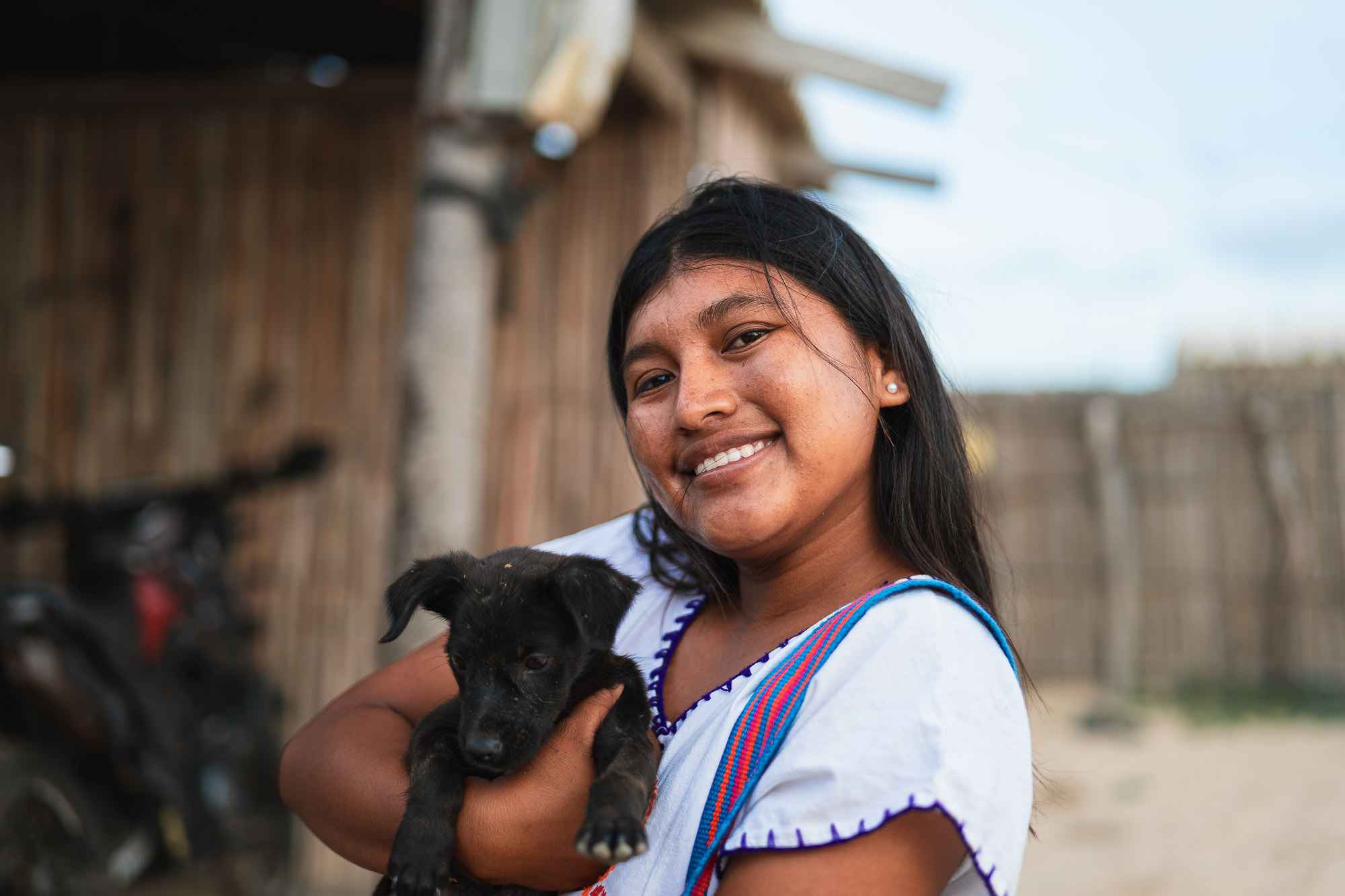
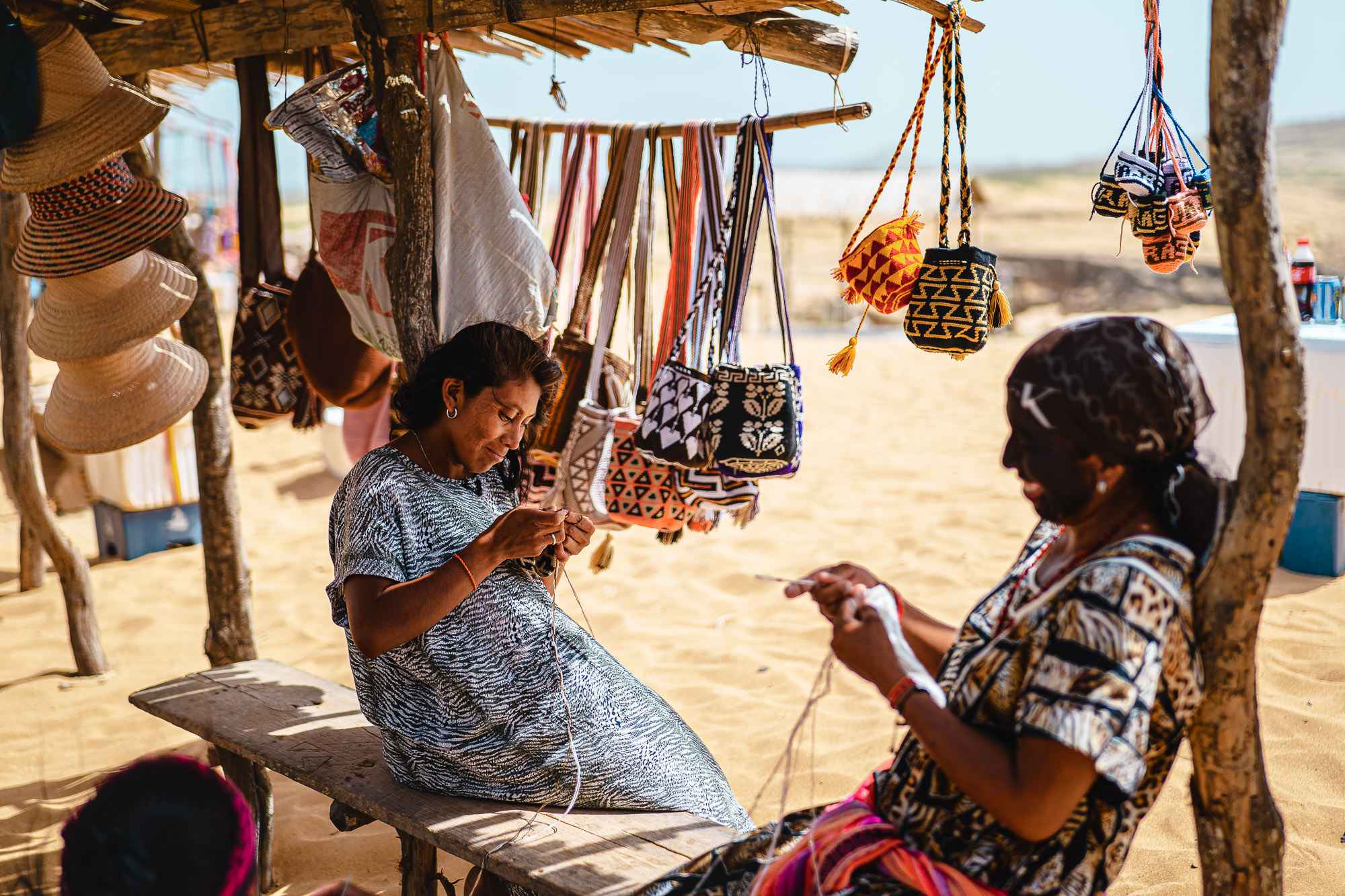
Cultural Significance of Mochilas.
For Wayuu women, weaving is not just a craft—it's a spiritual and cultural act passed down from mother to daughter. Each pattern, or kanaas, carries meaning: representing dreams, beliefs, and even social messages.
Creating a single mochila can take between 15 and 18 days, making each one a labor of love and identity.
In Her Own Words: A Wayuu Artisan’s Story
We spoke with Maripuillo, a Wayuu artisan from Cabo de la Vela, about her life, her art, and what it means to be a Wayuu woman today.
Maripuillo’s Journey: Weaving Life in Cabo de la Vela
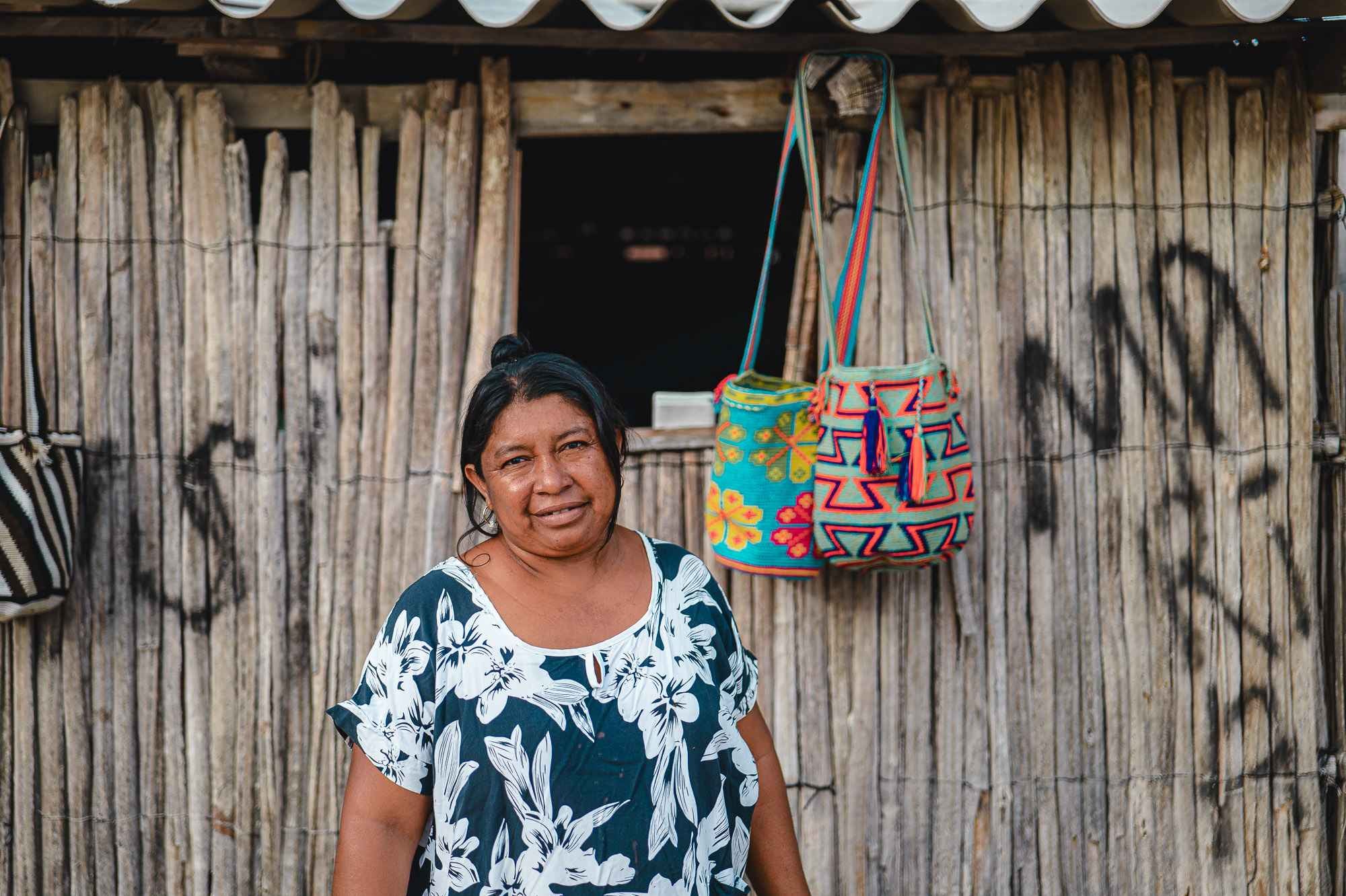
For over 15 years, Maripuillo has been weaving Wayuu mochilas and other handmade crafts in her hometown, Cabo de la Vela, a remote desert region of La Guajira, Colombia. Taught by her grandmother and mother, weaving is not just a skill for her — it's a tradition passed down through generations.
Her process begins by choosing the colors and design, each of which carries deep meaning within Wayuu culture. Using only yarn, a crochet hook, and a needle, she brings these stories to life through her hands.
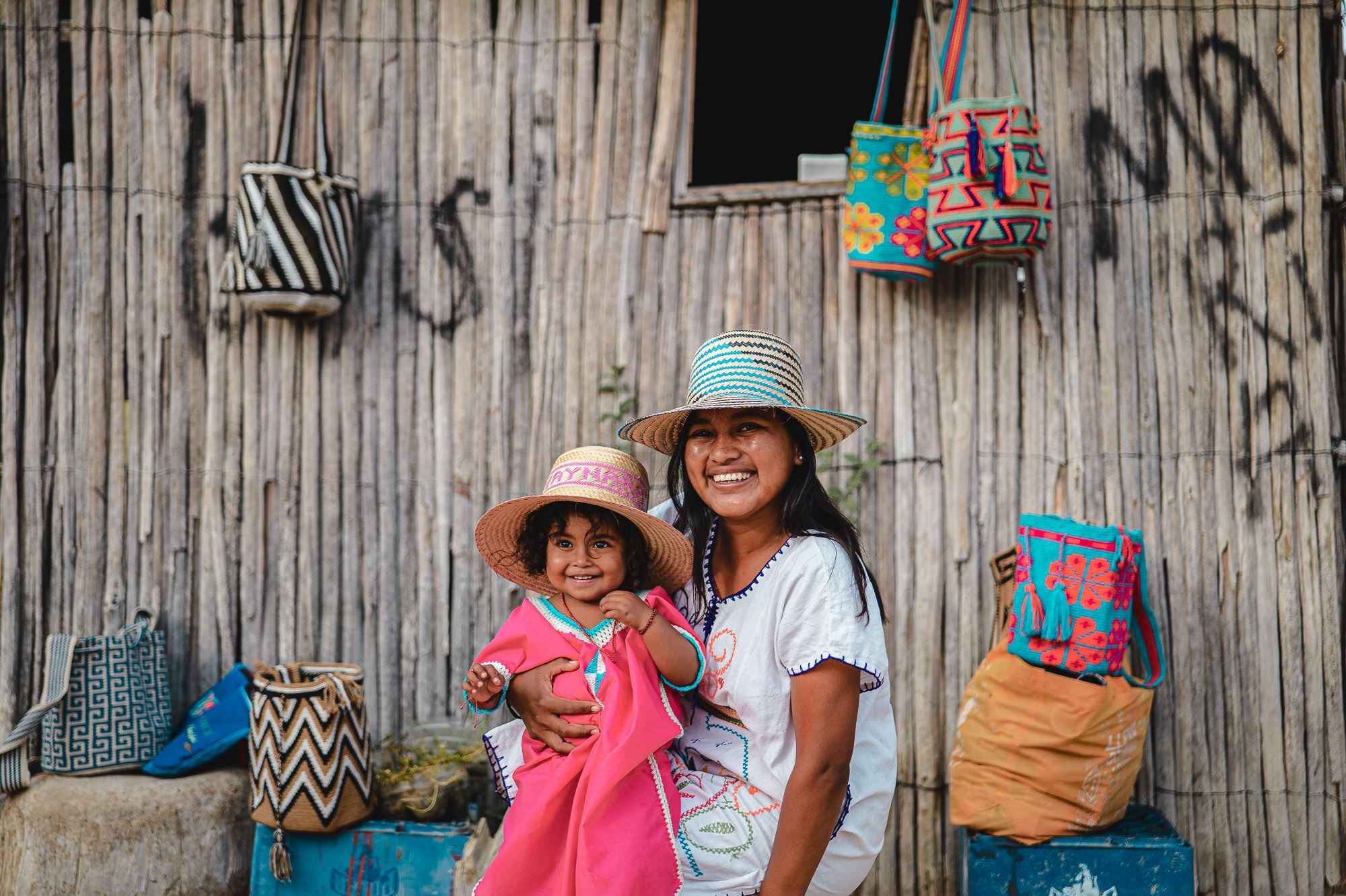
Depending on the size, a single mochila can take 15 to 18 days to complete. While she often works alone, she sometimes weaves alongside her sister or other family members. For her, the most enjoyable part is the quiet time she dedicates to her craft.
“Through the mochila, we preserve our customs and our identity as Wayuu people.”
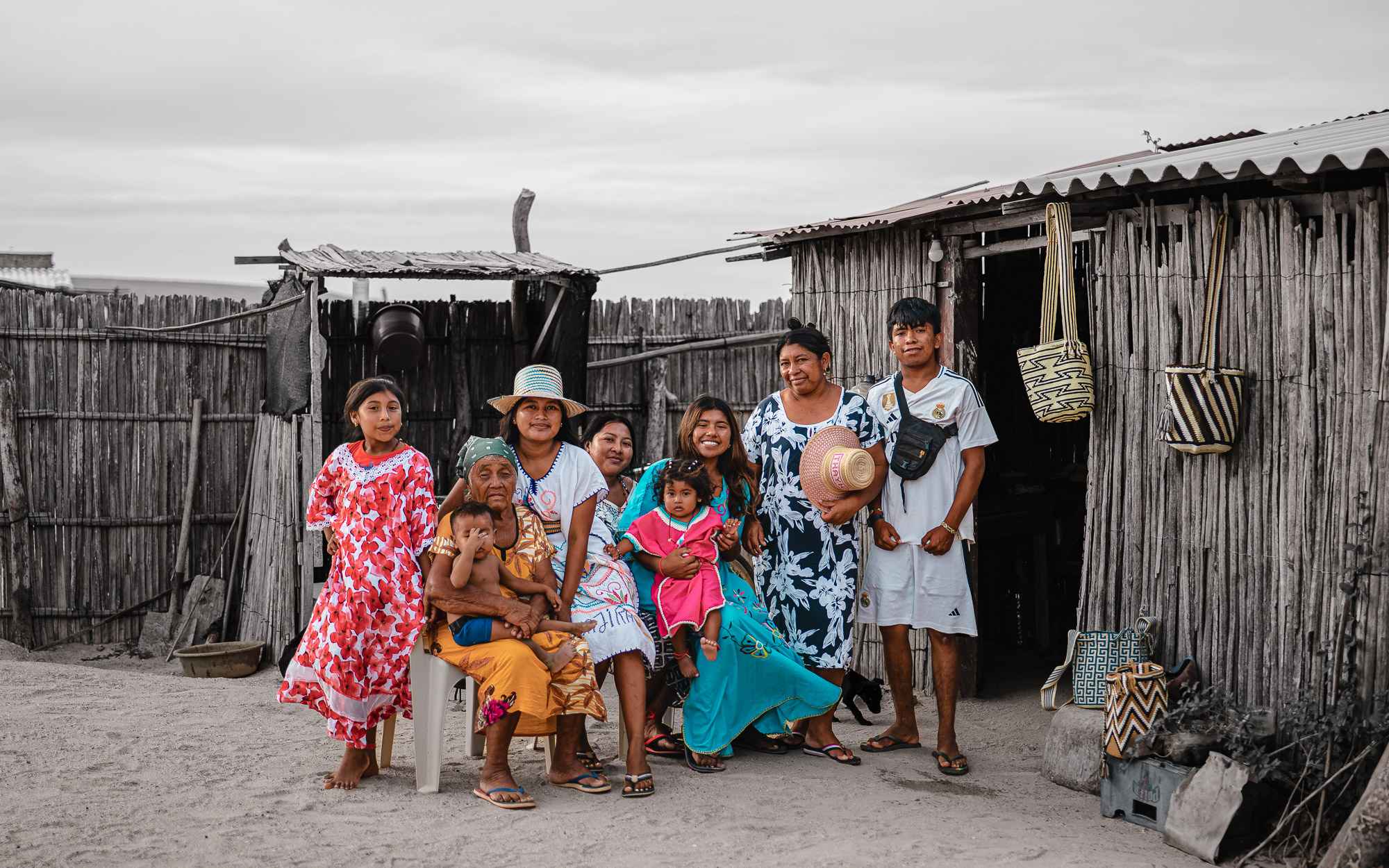
Despite the beauty of her work, Maripuillo faces challenges — especially financial uncertainty. Some days she sells, other days she doesn’t. She offers her crafts to local tourists and also takes custom orders from clients and businesses beyond her community.
Her dream?
“That people around the world discover our mochilas — so they can travel beyond Cabo, even internationally.”





